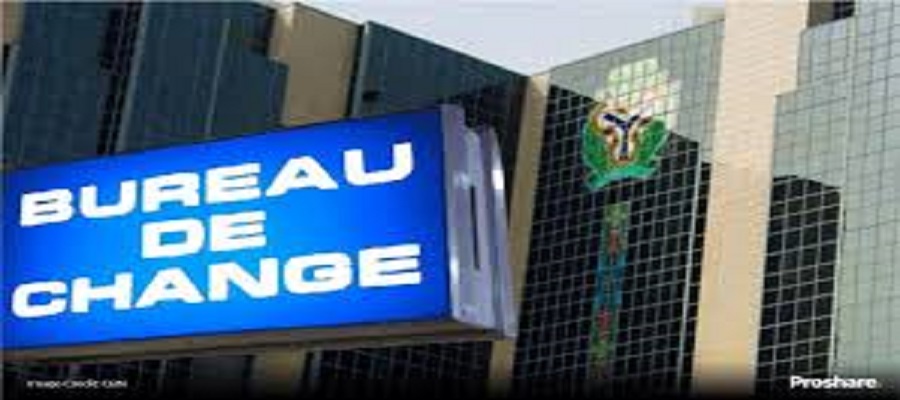E-Financial
How is the Coronavirus Impacting Nigeria’s Economy?

By Lukman Otunuga, Senior Research Analyst at FXTM
On March 26, Nigeria joined many other nations banning flights into the country and urging shelter-in-place, social isolation practices amid the coronavirus COVID-19 pandemic. President Buhari approved a 10-billion-Naira grant to the epicentre Lagos to fight the outbreak in the region and a five-billion-Naira grant to support the Nigeria Centre for Disease Control.
Exports of Oil and Gas will continue and more fiscal and monetary policy measures will be needed, said the president. Having left interest rates unchanged during its March meeting, the Central Bank of Nigeria (CBN) still has scope to reduce its key rates if inflationary pressures recede.
This raises the central question of what will happen to inflation levels. Food prices may rise sharply if measures are not taken to cap them under the current circumstances. Prices of pharmaceuticals, masks, and hand sanitiser in Europe were capped as part of governmental measures to control skyrocketing prices for these goods, for example.
Other goods which feed into price benchmarks are gasoline and electricity. These are expected to fall along with the price of Oil and government coffers should see some relief from the fuel subsidy, which had risen on the back of higher Oil prices earlier this year.
Additionally, the Naira is weakening and may fall further against other currencies if foreign reserves decline below $30 billion. A weaker Naira would add to inflationary pressures.
All told, the coronavirus pandemic is expected to have an unprecedented impact on the Nigerian economy. The disease represents a major threat to the economy because of plummeting Oil prices and close trading ties with China. While China is in the recovery stage of its coronavirus outbreak, the country’s industrial growth fell by 13.5 percent in the first quarter.
As industry is one of the biggest consumers of Oil with transportation being another, Oil prices could fall further than the 60 percent they already have since the beginning of the year. The International Monetary Fund (IMF) estimates that with each 10 percent fall in Oil prices, Oil exporting countries like Nigeria will see a 0.6 percent drop in GDP and an increase in fiscal deficits of 0.8 percent of GDP. Under the current circumstances, the federal government appears well aware after announcing a 10.6-trillion-Naira cut in the 2020 budget and a change in the benchmark Oil price from $50 to $30 per barrel.
The emergency should be a wakeup call for Nigeria to reduce its dependence on the Oil industry in order to weather future storms and black swan events. This was the direction taken by the CBN during its Growth 2.0 roundtable. Along with an initiative to depreciate the rate of foreign exchange sales to foreign portfolio investments (FPIs) to roughly N380.00, the reinvigorated drive towards diversification may help to stimulate interest in Nigeria’s financial instruments.
Nonetheless, the CBN may be forced to cut interest rates in the second half of the year if global conditions fail to improve. Fiscal measures may need support from an IMF loan after the fund expressed concerns over the global landscape and the impact of the coronavirus pandemic on African countries, extending emergency financing of up to $50 billion.
There is little doubt that aggressive monetary policy and strong fiscal responses must be put in place to cushion the damage inflicted by the coronavirus outbreak in Nigeria. Such steps would increase confidence for FPI’s to keep investing in Nigeria’s financial instruments and position the economy on the path to recovery after the pandemic is over.
E-Financial
CBN Waives 2025 Licence Renewal Fee for Bureaux de Change Operators

Central Bank of Nigeria (CBN) has waived the 2025 licence renewal fee for all bureaux de change (BDC) operators.

Jonah Onojah, director of the financial policy and regulation department, announced that the waiver took immediate effect.
“This is to inform all existing bureaux de change that further to the Regulatory and Supervisory Guidelines for Bureau De Change Operations in Nigeria, 2024, and the ongoing transition to the new BDC regulatory structure, the Central Bank of Nigeria (CBN) has approved the waiver of 2025 licence renewal fee, effective immediately,” the statement reads.
“Any bureau de change that has paid for 2025 licence renewal is hereby advised to apply to the Director, Financial Policy and Regulation Department, Central Bank of Nigeria for refund to its account from which the payment emanated.
“The CBN remains committed to fostering stability, transparency, and efficiency in the foreign exchange market while ensuring that operators align with the revised regulatory framework,” the statement said.
On May 22, 2024, CBN approved new guidelines for BDC operations to improve compliance and oversight.
In the guideline, CBN said all existing BDCs are to re-apply for a new licence according to any of the tiers or licence categories of their choice.
CBN said the guidelines are part of its efforts to re-position the BDC market to play its envisioned role in the foreign exchange market in Nigeria.
E-Financial
PalmPay is not a Loan App, says MD

PalmPay, a Mobile Money Operator and digital payment platform has reaffirmed its role as a mobile payment provider, correcting the insinuation that it is a loan App.

Chika Nwosu, Chief Executive Officer, PalmPay, speaking at a press conference in Lagos clarified that PalmPay’s core mission is to provide seamless payment solutions and financial services, not to issue loans.
This clarification became necessary against erroneous messages in some social media platforms that the PalmPay is a loan App, as well as individuals wearing PalmPay-branded clothing allegedly been involved in arresting loan defaulters, raising concerns about the company’s role in debt recovery practices.
He explained that all lending activities on its platform are conducted by third-party financial institutions leveraging its ecosystem, not PalmPay itself.
“PalmPay is not a loan App. We provide a platform for third-party financial institutions to offer their services, including loans, to our users. These institutions operate independently and comply with all regulatory requirements,” Nwosu explained.
More so, Chika Nwosu identified smartphone penetration, internet connectivity and innovative technologies as key factors that are crucial to increased access to mobile money services in Nigeria.
According to him, with smartphone penetration projected to reach 65% by 2026 as well as improved internet infrastructure, more Nigerians will be enabled to access mobile money services.
He disclosed that, with fintech companies such as PalmPay evolving through digital wallets and seamless payment gateways, accessibility to mobile money service was bound to expand soon.
He emphasized that with demand for affordability of financial services growing, more opportunities would be unlocked for PalmPay in the nearest future.
“From under 10,000 agents in 2015 to over 1.5 million agents in 2023, agent networks have become the backbone of mobile money operations in Nigeria. For this reason, we are more likely to see a sharp increase in the number of mobile money agents and merchants. Apart from that, MMOs will increasingly use artificial intelligence to improve customer experiences, such as machine learning, predictive analytics, and fraud detection,” he said.
Donald Ubeh, Head, Risk and Compliance, MLRO at PalmPay, while highlighting the impact of fintech companies such as PalmPay, explained that the coming of PalmPay has led to economic empowerment particularly for individual users and several Small and Medium Scale enterprises.
He noted that many Nigerians including bank customers have migrated their funds to PalmPay owing to convenience and accessibility it provides.
He added that mobile money operators were conceived with the aim of driving financial inclusion for the underserved and unbanked population.
According to EFInA, increasing adoption of fintech companies by Nigerians has led to increase in financial inclusion rate by 13% in 13 years.
E-Financial
Moniepoint MFB Says Rumours of N1.1Bn Theft by Hackers Malicious

Moneipoint has denied reports that Moniepoint MFB, its microfinance bank, was hacked and some N1.1 billion allegedly stolen.

Moniepoint, in a blog post said that the report, which began on social media was malicious and misleading and should be ignored.
According to the company, the alleged theft gained traction on social media, alleging that the company is facing operational challenges due to the hack.
“We categorically state that these claims are untrue, and we urge the public to disregard them in their entirety.
Moniepoint MFB has always maintained the highest standards for digital security and customer fund protection.
It stated that as a duly authorised and licensed financial institution, customer deposits with Moniepoint MFB are insured by Nigeria Deposit Insurance Corporation (NDIC), with the Central Bank of Nigeria (CBN) supervising and regulating its operations to ensure adherence to all applicable standards.

 E-Financial1 day ago
E-Financial1 day agoMoniepoint MFB Says Rumours of N1.1Bn Theft by Hackers Malicious

 General News1 day ago
General News1 day agoCourt Orders Arrest of Access Bank Acting MD, Others over Alleged Theft of Property

 Telecom1 day ago
Telecom1 day agoSERAP Drags Tinubu, Others to Court over ”Arbitrary” Telecom Tariff Hike

 E-Financial1 day ago
E-Financial1 day agoWorld Bank Urges CBN to Sustain Inflation Control Measures

 Telecom1 day ago
Telecom1 day agoFG, WIOCC Partner to Deliver Internet to 3m Homes with $10m Investment

 E-Financial1 day ago
E-Financial1 day agoZenith Bank Reinforces Commitment to Staff Wellbeing with Salary Hike and Promotions

 E-Financial1 day ago
E-Financial1 day agoSEC Warns against Transactions with Risevest, Stecs Cooperative Societies

 Telecom1 day ago
Telecom1 day agoGalaxy Backbone Celebrates Excellence and Innovation in Its People



























